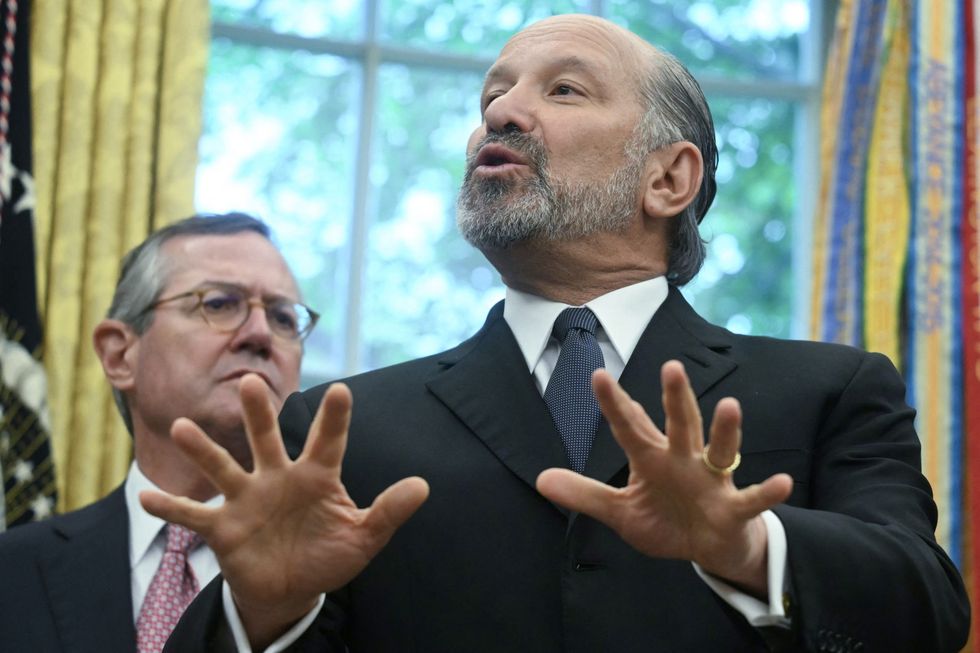House Speaker Mike Johnson is fighting to secure the final votes needed to advance President Donald Trump’s sweeping tax and spending bill, dubbed the “One Big Beautiful Bill.” The legislation, central to Trump’s domestic agenda, faces a critical hurdle in the House after passing the Senate by the narrowest of margins. Johnson can afford to lose only three Republican votes, but as of early Thursday, five GOP lawmakers have broken ranks, putting the bill’s fate in jeopardy.
Record-Long Vote and High-Stakes Lobbying The House Republican leadership has kept the procedural vote open for a record seven hours and 24 minutes, hoping to pressure holdouts into supporting the bill.
Speaker Johnson and President Trump have been personally lobbying dissenting members, with Johnson stating he will keep the vote open “as long as necessary.” Despite these efforts, nearly half a dozen Republicans have voted with Democrats to block the bill’s progress, while eight others have not yet cast their votes.
Who Are the GOP Holdouts?
The five Republican lawmakers opposing the bill are Andrew Clyde (Georgia), Keith Self (Texas), Victoria Spartz (Indiana), Brian Fitzpatrick (Pennsylvania), and Thomas Massie (Kentucky). Their reasons for dissent vary:
- Andrew Clyde objects to the removal of a gun rights provision.
- Victoria Spartz, a fiscal conservative, opposes the procedural motion but may support the bill itself.
- Keith Self backs the original House version but not the updated Senate bill.
- Brian Fitzpatrick, a centrist, has a history of breaking with party lines on healthcare.
- Thomas Massie is a frequent critic of deficit spending.
With only three defections allowed, the current opposition is enough to stall the bill’s passage.
What’s in Trump’s “Big Beautiful Bill”?
The 800-page bill is a cornerstone of Trump’s economic platform. Key provisions include:
Extension of 2017 Tax Cuts: Makes permanent several individual and business tax cuts from Trump’s first term.
New Tax Benefits: Introduces deductions for tips and overtime pay, and a $6,000 deduction for most seniors earning under $75,000.
State and Local Tax (SALT) Cap Increase: Raises the SALT deduction cap to $40,000 for married couples earning up to $500,000.
Defense and Border Security Funding: Allocates about $350 billion for defense and immigration enforcement.
Social Welfare Cuts: Proposes $2 trillion in cuts over a decade, including deep reductions to Medicaid and the Supplemental Nutrition Assistance Program (SNAP), and imposes new work requirements for many beneficiaries.
Debt Impact: The Congressional Budget Office estimates the bill would increase the federal debt by approximately $3.3 trillion over ten years.
Political and Public Backlash
The bill is unanimously opposed by Democrats, who argue it favors the wealthy while slashing social safety nets. Representative Chuy Garcia called it “a bad bill to enrich those who are already rich,” and urged constituents to pressure Republicans to vote against it. Independent analysis suggests the largest benefits would go to the top earners, with the lowest-income Americans receiving only modest relief.
Next Steps and Uncertain Future
With the July 4 deadline looming, Johnson and Trump are racing to flip enough votes to save the bill. The outcome remains uncertain, as both party unity and public opinion are deeply divided. If the bill fails, it would mark a significant setback for Trump’s legislative agenda and expose deep fractures within the Republican Party.















